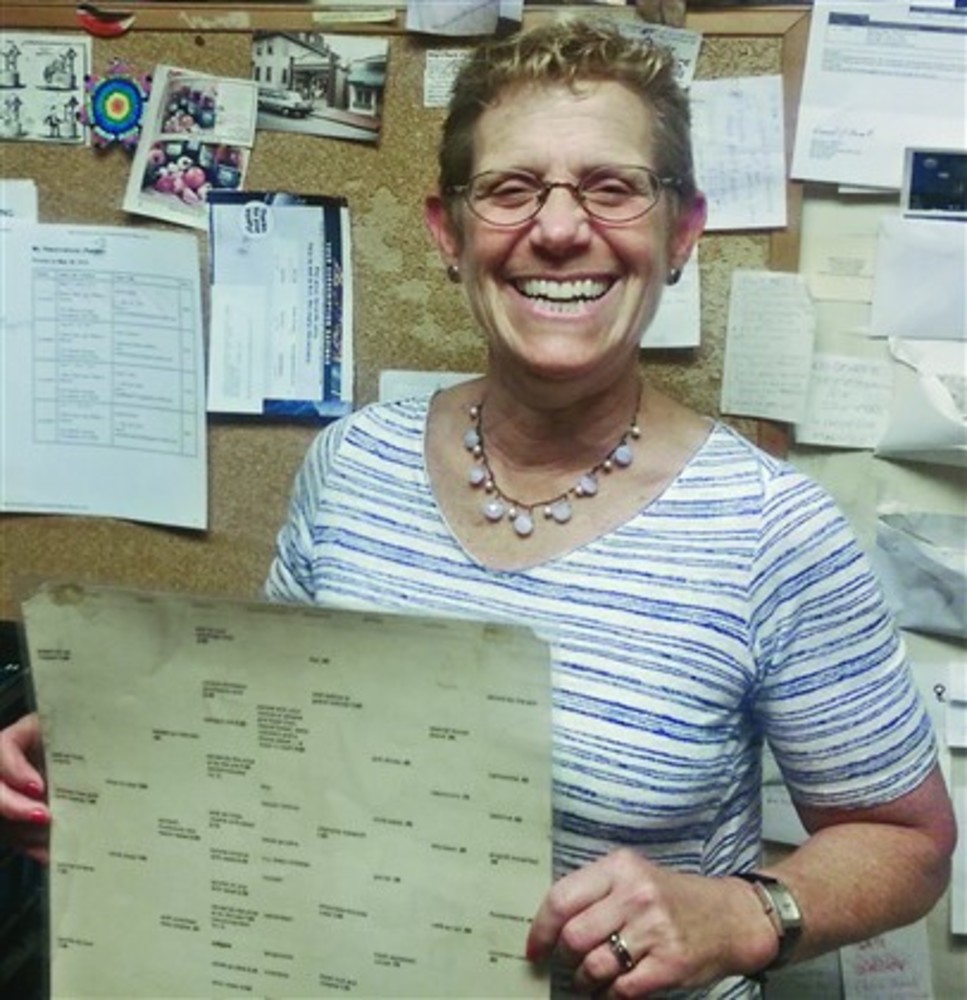Deb Norman, pioneer restaurateur
 Deb Norman holds an original menu. / Irina Missiuro
Deb Norman holds an original menu. / Irina Missiuro
Deb Norman, owner of the East Side staple, Rue de l’Espoir, the restaurant she just sold after nearly a 40-year run, didn’t get where she is with small talk and shyness. Through the years, she succeeded despite changing tastes, economic hardships and tough competition because she was fearless. Unafraid to go after what she wants, to say what she means and to do whatever it takes. When she states, “I am self-made, possessed with a great deal of creativity and chutzpah,” she’s not being coy. When she admits, “I have never been short on confidence and have always believed I can do whatever I set my mind to,” she means it.
Norman says she moved from cocktail waitress to bartender to management by being “bossy and organized.” She declares, “I am a trailblazer,” referring to the fact that she was a female restaurant proprietor in the 1970s. To illustrate, she tells a story about a liquor salesman who asked her, “Where’s your husband, honey?” She told him, “You are looking at him.”
Norman graduated from University of Rhode Island with a major in psychology and a minor in music (she played trumpet). After learning at her first job interview that she would be making $100 a week, she retreated to her mother’s Rhode Island house, discouraged and “depressed.” Trying to raise her spirits, her older brother suggested that she check out “a new hip bar,” The Incredible Organ. Hired as a cocktail waitress, Norman says she fell in love with the business’s energy. A quick study, she ended up working at the owner’s two other establishments. After a while, she wondered why she was working so hard for someone else and decided to open up her own place.
Teaming up with a friend, Norman borrowed $5,000 from five people and obtained a bank loan to found a restaurant. The two bought David’s Potbelly, which – she says – was housed in a beautiful Victorian with bay windows. During renovation, three weeks before the opening, the building caught on fire, stalling the project for a year. The cause was never discovered.
The Rue was finally opened in May of 1976. Norman says they marketed the restaurant as a quiche and crepe place because they saw a void for such cuisine in the area, where steakhouses, pizza joints and Chinese restaurants dominated. Through the years, they had to adjust to shifts in preference, reinventing the menu. Norman found herself frequently using the tagline, “The only thing French about us is our name.” Influenced by French, Italian and Asian cooking, the restaurant ultimately became an American bistro.
Norman figured out that her strength lay in management and stopped cooking after three years, hiring a chef who worked at the Rue for the next three plus decades. (She still loves making simple yet tasty dishes at home, where she entertains friends and family.) Norman bought out her partner after five years and focused on the administrative tasks of running a restaurant, such as consistently providing high-quality cuisine and service. At one point, Norman was managing a staff of 25. At the time, she owned three restaurants, including Baker Street Rue, which she sold; it is now called Baker Street Café. Norman still owns Rue Bis, a place in the Jewelry District she’s had for 15 years.
While Shakespeare has said, “All the world’s a stage, / And all the men and women merely players,” Norman chooses to see the restaurant business in a similar light. She thinks that the word “theater” encompasses the aura of a restaurant, with wait staff acting as players; tables, glasses and silverware – as props; and food – as the star, the main attraction. After 39 years, Norman is leaving the set because she feels that she has done everything she wanted to do. She says, “I knew I was ready to be done.” She has experienced owning “the date restaurant,” as the place was known in the ’70s and the early ’80s, the hot brunch spot and the Brown University go-to place. Norman says, “I feel fortunate to have been in this business at this time in this town. I am grateful for all the people who have made the experience possible.”
Because many customers feel like family to her, Norman admits that it gets harder to say goodbye as the closing time approaches. On the restaurant’s website, regulars leave notes in a Memory Book. For instance, Stephen Berenson wrote on July 14, “The neighborhood will never be the same without Deb, the Rue and the staff!” But she’s done her diligence, paid her dues. She survived the brutal pace and the ruthless hours, the high attrition rate, the bank and credit union collapse, the recession, the ’80s restaurant explosion. And she’s had fun along the way, “I love feeding people, the satisfaction it brings.”
Norman is ready for some relaxation. The day after our interview, she left on a 10-day trip to Barcelona and the south of France with her wife. When she returns, she will run the restaurant for one more week, until Aug. 9. Afterward, the new owners, reportedly Pane e Vino, will perform extensive renovations and open up sometime in the fall with a new concept.
But don’t dismiss Norman just yet. Even though she has no concrete plans in store, she was intrigued by a friend’s idea to buy a food truck – a venture she “has been thinking about forever.” Norman says that something about short-order cooking appeals to her. So, if you come across a Mexican food truck (her favorite cuisine), don’t say we didn’t warn you.
IRINA MISSIURO is a writer and editorial consultant for The Jewish Voice.







